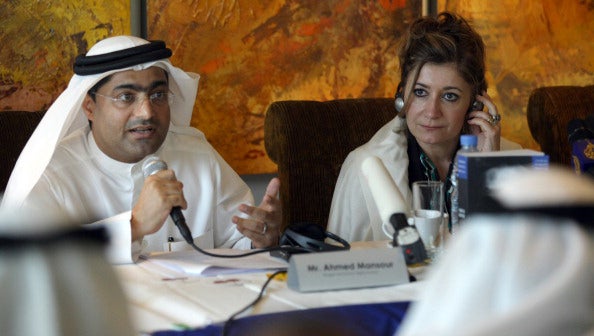by Emilee Gaebler
Impunity Watch Reporter, South America
CARACAS, Venezuela – On Friday, October 7, Venezuela’s Universal Periodic Review (UPR) began. UPR’s are done on a four year basis, with every member state of the United Nations. They are conducted by the Human Rights Council, which is made up of 47 member countries. The goal of the UPR’s is to ascertain the progress that has been made in each country regarding human rights.

Once a UPR has begun, a “troika” of countries is assigned to it. These three countries have 48 hours in which to prepare a final report that is then submitted to the Human Rights Council. This report consists of recommendations for human rights improvements to be made. The reports are not binding on the nations reviewed. The “troika” of countries assigned to Venezuela was Burkina Faso, Czech Republic and Guatemala.
Yesterday, the final report was submitted. This report included 148 recommendations that spanned a variety of topics. Venezuela chose to accept 95 of those recommendations. Another 15 will be considered. The remaining 38 recommendations were flatly rejected. These recommendations all focused on issues of judicial independence, freedom of the press and protection for non-governmental activist groups.
Other suggestions were; more guarantees to allow for freedom of expression, increased safety for journalists, an independent and open selection process for prosecutors and judges as well as a higher respect for the independence of the judiciary. Concerns regarding Venezuela’s failure to comply with the Inter-American Court of Human Rights (IACHR) and its denial of entry to UN special rapporteurs were also noted.
During their presentation, Venezuela made special note of signing on to most international treaties and covenants on human rights. The Slovakian delegate politely chided this with a diplomatic statement inviting Venezuela to “observe them” in practice.
Brazil also gently chastised Venezuela. “The guarantee of human rights needs independence of the Judiciary branch and full freedom of expression and freedom of the press,” was the Brazilian ambassador’s statement to the Human Rights Council.
The Venezuelan vice minister of foreign affairs, Temir Porras Ponce de Leon addressed the rejections made with a statement that called the rejected recommendations “groundless statements” as well as “disrespectful and interfering.”
Venezuelan Foreign Affairs minister Nicolas Maduro said “[t]he proposals from the US are aggressive, cynical and boil down to a slap in the face to the dignity of our people.” He noted that only twelve countries criticized the lack of judicial autonomy, limits on freedom of expression and insufficient protection for non-governmental organizations.
For more information, please see;
CNN International – Venezuela Rejects Certain Human Rights Recommendations – 11 October 2011
El Universal – UN Members Urge Venezuela to Meet International Agreements – 11 October 2011
El Universal – Report on Human Rights to be Submitted on Tuesday – 10 October 2011
El Universal – Venezuela Rejects UN Petitions to Repeal Crimes of Opinion – 10 October 2011
MercoPress – Brazil, in Friendly Tone, Asks Venezuela for Fair Judges and Freedom of Expression – 10 October 2011


